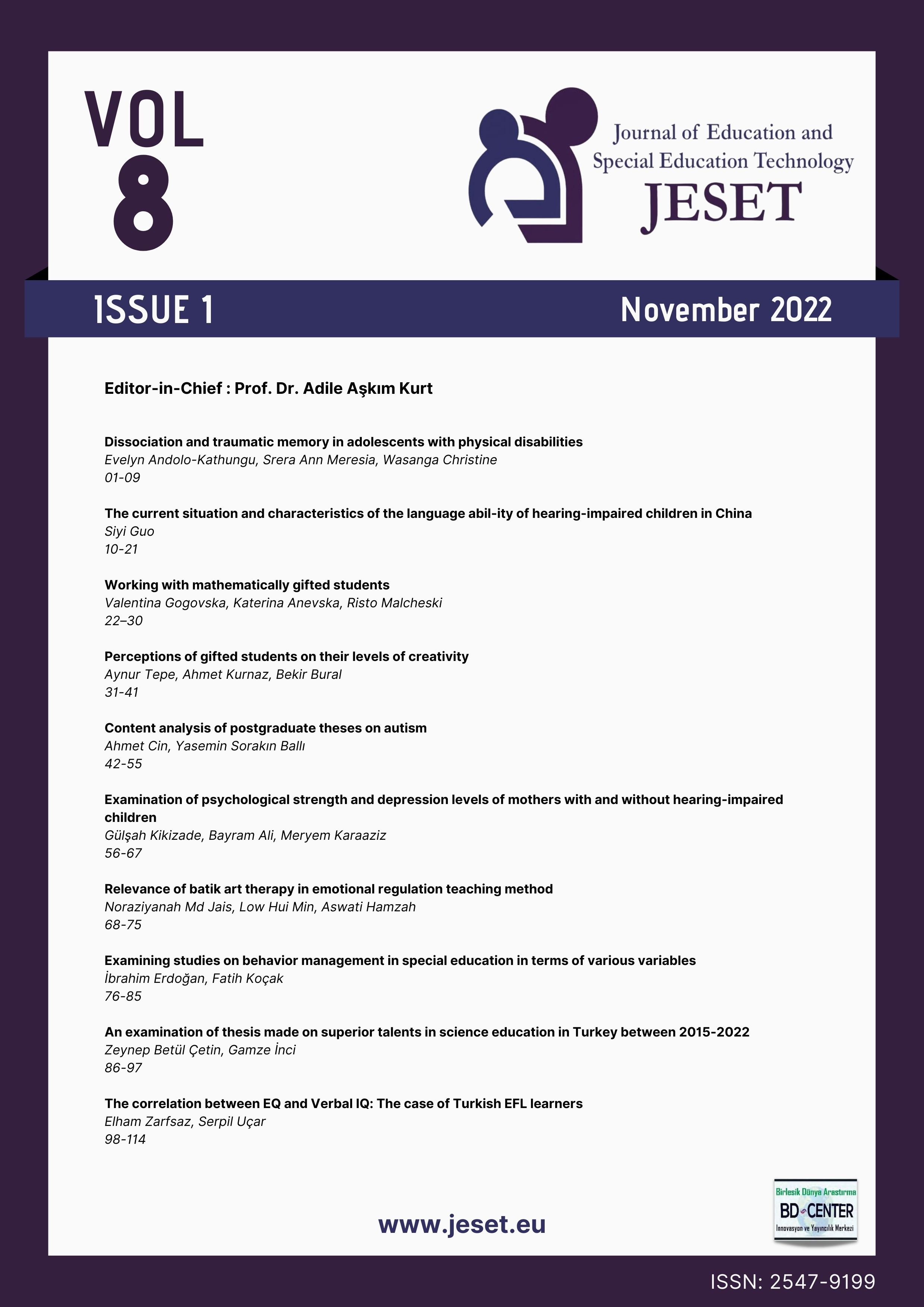Dissociation and traumatic memory in adolescents with physical disabilities
Main Article Content
Abstract
Dissociation occurs during or after an event that has caused trauma. Generally, dissociation takes place when an individual reacts during or after a traumatic event in self-protection to avoid psychological harm. This may be presented as a distortion of thoughts in terms of space, time, consciousness or even personality. This study sought to understand whether the memory of trauma influenced dissociation. A dissociation events scale was used to explore the levels of dissociation within factors such as derealisation, amnesia and absorption. A correlation design was used to find out the relationship between memory with dissociation. The results indicated that there was a positive relationship between the memory of trauma and dissociation. Pearson’s correlation was used to find the relationship between the impact of the memory of trauma and dissociation. The findings were inverse. The impact of trauma increased when dissociation decreased.
Downloads
Article Details

This work is licensed under a Creative Commons Attribution 4.0 International License.
International Journal of Special Education and Information Technologies (JESET)is an Open Access Journal. All articles can be downloaded free of charge. Articles published in the Journal are Open-Access articles distributed under Creative Commons Attribution-Non-Commercial-NoDerivatives 4.0 International.
Birlesik Dunya Yenilik Arastirma ve Yayincilik Merkezi (BD-Center) is a gold open access publisher. At the point of publication, all articles from our portfolio of journals are immediately and permanently accessible online free of charge. BD-Center articles are published under the CC-BY license [Attribution 4.0 International (CC BY 4.0)], which permits unrestricted use, distribution, and reproduction in any medium, provided the original authors and the source are credited.
Gold open access publishing services, which include end-to-end support – from research integrity and peer review, through to innovations in technology and artificial intelligence as well as global dissemination – are supported through Article Processing Charges (APCs). APCs enable the long-term stability of our program, and facilitate equal opportunity to seek, share and create knowledge that benefits all society without restriction. Quality is maintained through rigorous peer review and support through technological innovations, such as our Artificial Intelligence Review Assistant (AIRA).
Open access to the results of publicly funded research is of huge value, offering significant social and economic benefits. The open access publishing model, defined by the Berlin Agreement in 2003, improves the pace, efficiency, and value of research to society. By its very nature, it improves the visibility of authors' work and enables better scholarly exchange, and therefore, the potential impact of that work.
By eliminating the barriers that block the free distribution of knowledge, open access enables scientists to collaborate better, innovate faster, and deliver the solutions we need for healthy lives on a healthy planet.

